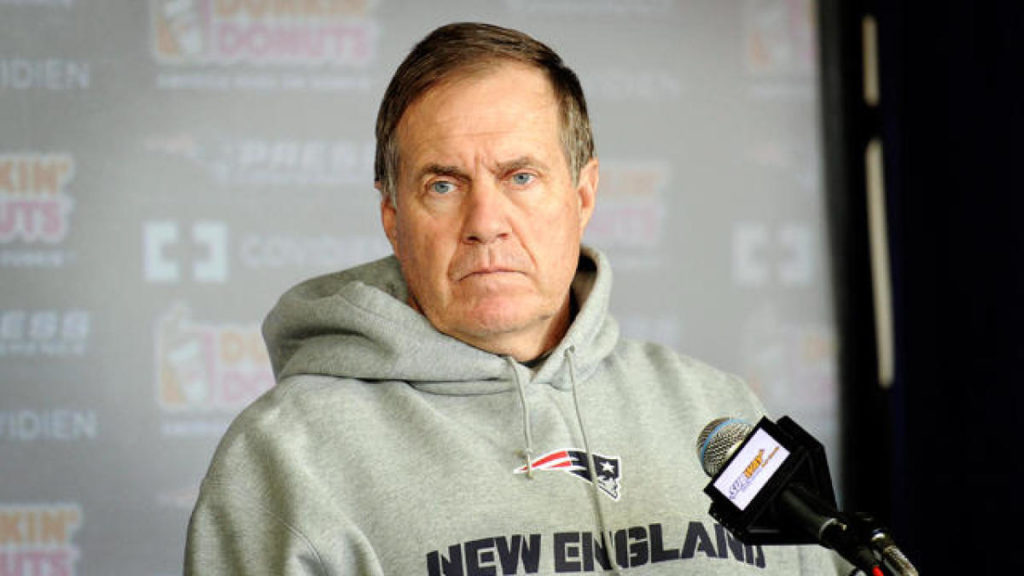
Post-game interviews are arguably the most insufferable aspect of professional sports, if not the entire entertainment industry.
I remember sitting in front of the TV as a kid, eagerly waiting to obtain some slice of genius from my beloved NBA and NFL superstars, only to have my hopes dashed by their strings of empty clichés that my own volunteer coaches could have mustered.
Even as an adult, I feel thwarted every time an athlete or coach stares blankly into Erin Andrews’ microphone and regurgitates the same platitudes about focusing on the fundamentals, sharing credit with teammates, taking it one game at a time, whatever.
If you’re unfamiliar with the robotic banality of post-game interviews, here’s a snippet of Tom Brady’s press conference after winning his sixth Super Bowl (the most of any player in NFL history)
Reporter: Tom, that was a remarkable win. Can you walk us through what happened?
Brady: Yeah, we grinded it out. It was tough. [The Rams] made every play tough tonight. I give them credit. It was an incredible win.
Reporter: When you came out to the field for your last drive, what was going through your mind?
Brady: You gotta make yards…We moved the ball decent…and just a great win for our team.
And here’s All-NBA forward Kawhi Leonard after winning the 2019 Finals MVP:
Reporter: How special was it to receive the MVP award from Bill Russell?
Leonard: Obviously I didn’t come out in the series trying to win it. It was a whole group that played collectively. I just kept striving and pushing…but everybody deserves it.
Reporter: What went through your mind when Steph Curry had that look? Did you think the game could be in [the Warrior’s] hands?
Leonard: I wasn’t too worried about it…I just was focused on the rebound.
This stuff is comically boring—always has been and always will be.
Each week, TV networks pay overdressed sportscasters to shove microphones in athletes’ faces and implore them to give the audience a glimpse into their world. And each week, we sit in front of the TV and think that maybe Russell Wilson, Jimmy Butler, or Mike Trout will actually open up this time and tell us what it’s really like to be physically superior to 99.99% of people on Earth.
But without fail, they let us let down. Wilson, Butler, and Trout jog back to the locker room while we roll our eyes at their lifeless sound bites. What gives? Are elite athletes really as inarticulate and stale as they sound? Are they holding something back? A combination of the two?
Anybody who has examined an NFL playbook or considered the precision required to exchange a baton while running 24 miles per hour understands that athletes aren’t brain dead—they can’t afford to be. Otherwise they would implode.
Most of us assume that highlight-reel athletic feats require superhuman concentration and physical mastery. How else could Howie Kendrick make contact with a 90-mph fastball—much less hit a grand slam—to win the NLDS with 56,000 people jeering at him?
But what elite athletes possess (and convey in post-game interviews) isn’t “focus.” In fact, they’re not even thinking at all. The real answer to that timeworn question—“What was going through your head?”—is depressingly simple:
Nothing at all.
It’s this mind-numbing simplicity that enables athletes to be wholly present without being conscious of the stakes. For true professionals, performance is reduced to muscle memory and pure instinct. They don’t just sound like robots, they are robots (at least during the game).
When Tom Brady says, “We moved the ball” or when Kawhi Leonard says, “I was just focused on the rebound,” they’re not saying it ironically—they actually mean it.
“For top athletes, clichés present themselves not as trite but simply true,” said essayist David Foster Wallace. “Or perhaps not even as declarative expressions…but as simple imperatives that are either useful or not.”
When you take up a new sport or hobby, you always get the basic instructions: “Keep your eye on the ball!” Then you grow older and feel pressure to get an edge, so you pick up obscure drills or rituals, which inevitably trip you up and overcomplicate the craft. But after you get over this semi-pro barrier, it all becomes simple again: It really is about keeping your eye on the ball.
To be a professional is to be ruthlessly simple—and this isn’t limited to the purview of professional sports.
Jerry Seinfeld doesn’t come up with new material every day because of some cool bio-hack—he sits at a desk and writes on a yellow notepad until he thinks of something funny. Yo-Yo Ma didn’t become a master cellist by following a secret formula—he has logged more than 60,000 hours sitting at the cello throughout his life.
This is what separates professionals from amateurs: to understand that the Super Bowl is just another game; that starting a business is just identifying a gap in the market and closing it; that writing a book is just sitting at the keyboard every day until you finish the last chapter.
Once you grasp this, you’ll never see a post-game interview the same way ever again.
Have you read these five books to base your life on? Get the list, plus seven strategies I stole from legendary marketers to promote your work.